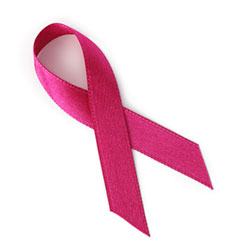- Conditions & Care
- Disease & Symptom Information
- Service Line
5 Risk Factors for Breast Cancer in Men

No one expects men to get breast cancer, but it still happens. The lifetime risk for a man to get breast cancer is about 1 in 1,000. For women, that number is 1 in 8.
Apurva Mehta MD , of the TriHealth Cancer & Blood Institute
, of the TriHealth Cancer & Blood Institute , explains a few factors that put a man at risk for developing breast cancer.
, explains a few factors that put a man at risk for developing breast cancer.
#1: Being Diagnosed with Klinefelter Syndrome
Klinefelter syndrome is a rare condition, characterized by the presence of an extra chromosome in a male (it presents as XXY instead of XY). Men with this condition have higher levels of estrogen, which has been linked to breast cancer.
#2: Being Diagnosed with Gynecomastia
Gynecomastia is a condition that causes the growth of abnormally large breasts in males. It is due to the excess growth of breast tissue, not excess fat tissue. Changes in the levels of androgen and estrogen hormones, or how the body responds to these hormones can cause enlarged breasts in men.
This condition may occur in one or both breasts and often begins as a small lump beneath the nipple. Gynecomastia during puberty is not uncommon and usually goes away on its own. While having gynecomastia does not put you at a significantly higher risk for developing breast cancer, it's still important to be aware of this condition.
You should contact your doctor if you present the following gynecomastia symptoms:
- You have recent swelling, pain, or enlargement in one or both breasts
- There is dark or bloody discharge from the nipples
- There is a skin sore or ulcer over the breast
- A breast lump feels hard or firm
#3: High Alcohol Consumption
Research shows that drinking more than two glasses of alcohol a day may increase your risk for breast cancer. For this reason, Dr. Mehta advises limiting alcohol intake.
#4: Being Overweight
Obesity is another factor linked to breast cancer. Studies show that obese people produce more estrogen, which can fuel the development of breast cancer.
A BMI that falls between 18.5 and 24.9 is considered to be healthy. If your BMI is above 25, losing weight can reduce your risk for developing breast cancer as well as other health conditions.
#5: Testicular Problems
Men who have testicular issues, like undescended testes or who experienced a testicular injury while playing sports, are at a higher risk for developing breast cancer.
For example, “people who have what we call, recurrent testicular infection, they don’t make that much testosterone … and they end up with more estrogen,” Dr. Mehta points out.
Related Articles
- Community & News
- Conditions & Care
- Orthopedics
- Patient Stories
- Service Line
- Treatments
- Conditions & Care
- Pediatrics
- Primary Care
- Service Line
- Treatments